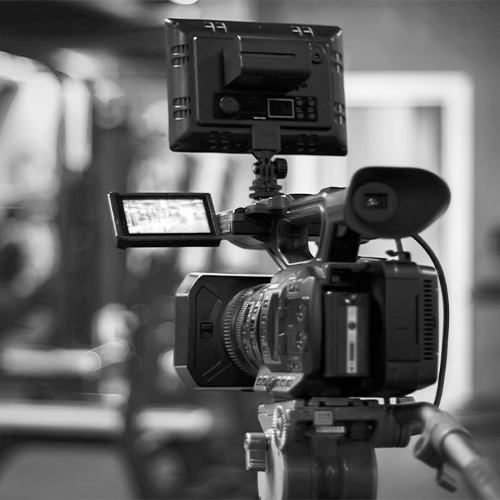Sexual Offences Prosecutions | Pre- Recorded Evidence

In 2016 Special Measures were introduced under the Youth Justice and Criminal Evidence Act 1999 (the Act’) whereby:
- Section 27 -A special measures direction may provide for a video recording of aninterview of the witness to be admitted as evidence in chief of the witness.
- Section 28 - Where a special measures direction provides for a video recording to be admitted under section 27 as evidence in chief of the witness, the direction may alsoprovide for any cross-examination of the witness, and any re-examination, to be recorded by means of a video recording.
The intent is to create an environment whereby young complainants who feel vulnerable and intimidated by the usual legal process to have their formal recorded interviews presented by way of their evidence and to be cross-examined by video evidence, which will take place away from the presence of the defendant.
These arrangements are intended to improve on the previous situation whereby the complainant would, for example, provide evidence during a Trial, from behind a screen or over a link from another part of the building, where the presence of the defendant in close proximity was intimidating.
In 2021, the availability of the Special Measures was extended to adults.
According to a study conducted by University College London, a consequence of the implementation of the Special Measures is that there has been a substantial reduction in conviction rates for such offences to the extent that the Researchers have suggested alleged rape victims should be informed that the presentation of pre-recorded evidence may result in a lower prospect of the defendant being convicted.
Amandeep Murria of KANGS sets out the relevant law.
The Relevant Law
The Act states:
‘ 27 Video recorded evidence in chief.
(1) A special measures direction may provide for a video recording of an interview of the witness to be admitted as evidence in chief of the witness.
(2) A special measures direction may, however, not provide for a video recording, or a part of such a recording, to be admitted under this section if the court is of the opinion, having regard to all the circumstances of the case, that in the interests of justice the recording, or that part of it, should not be so admitted.
(3) In considering for the purposes of subsection (2) whether any part of a recording should not be admitted under this section, the court must consider whether any prejudice to the accused which might result from that part being so admitted is outweighed by the desirability of showing the whole, or substantially the whole, of the recorded interview.’
Section 28 - Video recorded cross-examination or re-examination.
(1) Where a special measures direction provides for a video recording to be admitted under section 27 as evidence in chief of the witness, the direction may also provide
(a) for any cross-examination of the witness, and any re-examination, to be recorded by means of a video recording; and
(b) for such a recording to be admitted, so far as it relates to any such cross-examination or re-examination, as evidence of the witness under cross-examination or on re-examination, as the case may be.
(2) Such a recording must be made in the presence of such persons as Criminal Procedure Rules or the direction may provide and in the absence of the accused, but in circumstances in which
(a) the judge or justices (or both) and legal representatives acting in the proceedings are able to see and hear the examination of the witness and to communicate with the persons in whose presence the recording is being made, and
(b) the accused is able to see and hear any such examination and to communicate with any legal representative acting for him.
(3) Where two or more legal representatives are acting for a party to the proceedings, subsection (2) (a) and (b) are to be regarded as satisfied in relation to those representatives if at all material times they are satisfied in relation to at least one of them.
(4) Where a special measures direction provides for a recording to be admitted under this section, the court may nevertheless subsequently direct that it is not to be so admitted if any requirement of subsection (2) or the direction has not been complied with to the satisfaction of the court.
(5) Where in pursuance of subsection (1) a recording has been made of any examination of the witness, the witness may not be subsequently cross-examined or re-examined in respect of any evidence given by the witness in the proceedings (whether in any recording admissible under section 27 or this section or otherwise than in such a recording) unless the court gives a further special measures direction making such provision as is mentioned in subsection (1)(a) and (b) in relation to any subsequent cross-examination, and re-examination, of the witness.
(6) The court may only give such a further direction if it appears to the court—
(a) that the proposed cross-examination is sought by a party to the proceedings as a result of that party having become aware, since the time when the original recording was made in pursuance of subsection (1), of a matter which that party could not with reasonable diligence have ascertained by then, or
(b) that for any other reason it is in the interests of justice to give the further direction.
(7) Nothing in this section shall be read as applying in relation to any cross-examination of the witness by the accused in person (in a case where the accused is to be able to conduct any such cross-examination).Section 28 - Video recorded cross-examination or re-examination.
Official Comment:
Prof Cheryl Thomas KC, at UCL Faculty of Laws, said,
‘Section 28 may need reform. It would be prudent for police and the Crown Prosecution Service to routinely advise witnesses of lower conviction rates because of such a strong and consistent correlation between the use of Section 28 evidence and lower jury conviction rates.’
John Riley, from the Criminal Bar Association, who both prosecutes and defends rape cases, said:
‘The complainant's police interview serves as an investigative tool and their evidence in chief. The quality of this interview can be very varied. Sometimes, the complainant is some distance from cameras. The defendant is always in person before the jury. The absence of a witness in person in both parts of the complainant's evidence can have a negative impact on the jury.’
How Can We Assist?
As can be seen from the above, particularly the comments of John Riley, serious consideration as to the acceptability and quality of the evidence is required in circumstances where the Complainant seeks to avoid providing personal evidence before a court.
The Team at KANGS is accustomed to handling challenging circumstances of this nature and enjoys a first- class nationwide reputation for defending clients facing charges of criminal conduct of every conceivable nature.
In the preparation of each client’s defence we will, as a matter of course diligently attend to each procedural step required such as:
- analysing all of the Prosecution evidence,
- obtaining Disclosure of Unused Material,
- attending our client taking detailed instructions on all of the evidence and unused material served by the Prosecution,
- examining all client material available and advising upon further evidence that may be required,
- formulating and pursuing specific disclosure requests,
- preparing all relevant written documentation,
- attending all Court Hearings, including Trial,
- attending Defence Witnesses and obtaining statements, and preparing a Defence Statement
- identifying and instructing appropriate counsel, including King’s Counsel where appropriate.
Who Can I Contact for Help?
Our nationally recognised Criminal Sexual Offences Defence Team is here to help. If we can be of assistance, please do not hesitate to contact our Team using the information below:
Tel: 0333 370 4333
Email: info@kangssolicitors.co.uk
We provide an initial no obligation consultation from our offices in London, Birmingham, and Manchester. Alternatively, we provide initial consultations by telephone or video.







